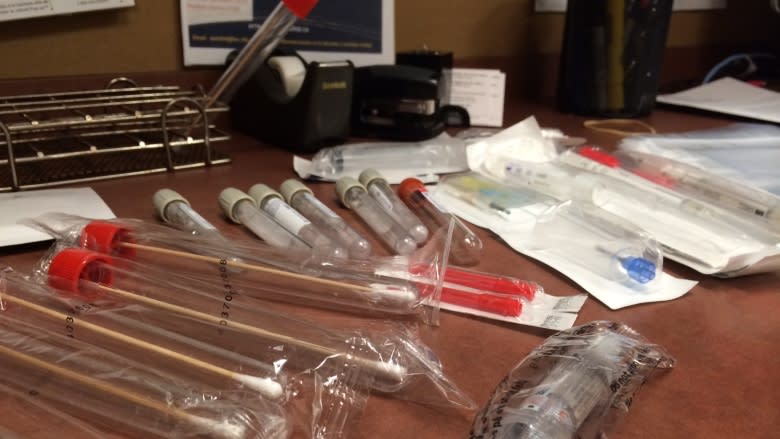Ministry of Justice should fund rape kits, city councillor proposes

A Squamish city councillor, herself a survivor of sexual assault, is fighting to make the collection of sexual assault evidence more available with a new funding model.
Coun. Susan Chapelle is proposing that funding for rape kits be moved from the Ministry of Health to the Ministry of Justice. She says it would result in more funding to hire staff and provide the necessary training for them to administer the sexual assault evidence collection kit, she said.
She has put a motion to the annual the Union of B.C. Municipalities convention asking for the change.
Collecting evidence from a crime should be supported by the justice system, she told CBC host of On The Coast Stephen Quinn.
"It's also a health-care issue but collecting the forensic evidence in order to prosecute demands a different funding model," Chapelle said. "We are asking the Ministry of Justice to support the health authorities."
Limited resources
The sexual assault services would still be provided by health-care authorities, but Chapelle said but an increase in funding would help make the services more accessible.
Chapelle says the Ministry of Health has told her there would need to be five full-time nurses on rotation in order to have rape kits available 24 hours a day.
"Currently, we battle extracting funds from different locations in the health-care budget, and it seems to be a struggle for the province to consistently fund this through the health-care budget," she said.
Right now, there are limited locations in the province where nurses are trained to collect forensic sexual assault evidence.
In the Sea-to-Sky Corridor, victims of sexual assault wanting access to a forensic examination kit on the weekend or after 4:30 p.m. have to travel to Vancouver General Hospital or UBC hospital.
Chapelle wants rape kits to be available 24 hours a day, seven days a week and within a 50-kilometre commute.
"Victims in Squamish come forward regularly after business hours and choose not to travel to VCH because of the distance and the fear of the city," she said.
'Shame and isolation'
A lack of services in communities also fuels stigma about sexual assault, Chapelle added.
"We would have rape victims that would have to go to the hospital and be driven down in the back of a police car," she said. "Survivors that live in shame and isolation in the community never fully heal, because they don't have access to the services in their community."
The funding change proposal is expected to be considered this week at the UCBM convention.
With files from On The Coast.

